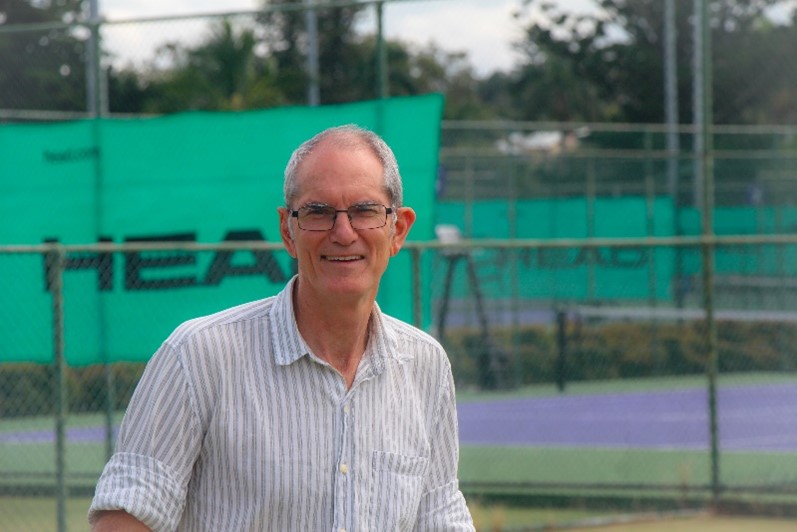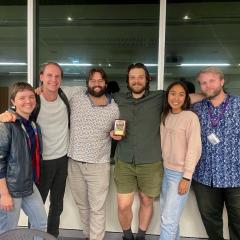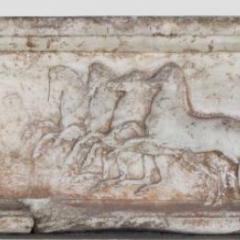 I would literally go crazy if I didn’t have my tennis court and chain saw. There is a physicality to my work-life balance: gardening on my acreage, pulling down trees, whacking the ball on the tennis court.
I would literally go crazy if I didn’t have my tennis court and chain saw. There is a physicality to my work-life balance: gardening on my acreage, pulling down trees, whacking the ball on the tennis court.
I did my first degree in engineering and I remember an incoming head of school telling us that he didn’t think that engineers should become a bunch of technocrats. So he insisted that engineers do courses in the humanities. And I loved it and decided to pursue the humanities. I bought what he was saying: that we need to humanize society. And that has stayed with me in my work: How do we humanize public institutions like universities, corporations like Telstra, hospitals and schools? Nobody wants a society where all that matters are efficiencies and improving infrastructure!
The value of the humanities lies in producing socially responsible citizens. There’s an ethical edge to what we do.
I did a BA Honours, receiving a first class, at UQ. I liked the stuff I was working on, but I had 3 kids and a fourth on its way to think about so I decided to spread my wings and I worked for 8 years in parish ministry.
In my Honours I was exercising creativity in my work that was getting rewarded. I might have over-reached in thinking my own thoughts but I continued to work at developing more of a foundation and I brought together the thinking of Rahner and Erikson. All of sudden I got excited that my thoughts weren’t over-reaching and I got a couple of articles published out of the honours. That gave me the chance to later apply for scholarships and I did a PhD at the University of Edinburgh on practical theology.
It seemed irresponsible. But all of a sudden, the impossible dream became possible. I got a scholarship from the British Research Council and it was matched by Edinburgh University. I sold my four-wheel-drive and house in Brisbane and packed up the four kids to move across the world. I remember waking up in a cold sweat thinking, “what have I done!” But it was a wonderful experience. I had a brilliant supervisor, and the seminars were rich and collegial, and we fell in love with the city.
My time as a parish minister was quite transforming. It allowed me to journey with people through their experiences – relationship break-ups, cancer diagnoses – and I found a new side to myself. I found myself bringing together Gabriel Marcel and Martin Buber as the intellectual tools for doing this work. Their thought offered me a way to think through these deeply personal and human struggles that weren’t available through slick counselling theories and they enabled a genuine human response. These thinkers taught me how relationships, and authenticity, heals.
I’ve taken this approach into my University teaching, encouraging student-centred and person-centred learning through classroom interactions. I remember being a young postgraduate student at a seminar in Edinburgh and asking a question to the speaker and being shot down abruptly. Prof. Duncan Forrester, however, rehabilitated my question, allowing me to save face. What he did and how gracefully he did it always stuck out in my mind. He modelled for me how I wanted to interact with my students and how learning becomes possible.
Since starting at UQ in 2008 I’ve had lots of opportunities to form really good friendships with colleagues. Serving on committees has helped develop these relationships, and recently I enjoyed immensely the opportunity to partner with colleagues to develop an ARC Discovery Grant on the decline in mercy in public institutions and stories of restoration. It shows the real strengths of the School to collaborate across research areas in matters with deep public significance.
What are the challenges for UQ ahead? Since starting at UQ I’ve noticed that work has become a lot harder for academics. There’s more “busy work”, and academics are in a real bind. It can distract from the core business of teaching, research, and engagement.
I’ve learned that I’m a perfectionist by nature. So I’ve had to tell myself, “don’t try to be perfect”. That will make you crazy and you will burn out. I can still do quality work but don’t obsess about it. I’ve learned to be a pragmatist to survive.
My parents didn’t have educational opportunities but they always encouraged me in school and had books around. My intellectual efforts were always balanced with my physical ones: bowling a cricket ball, kicking a footie, and whacking a tennis ball.
I am looking forward to my next chapter, moving on to teach part time at Trinity College Queensland, where I did my training, and I to have more time to enjoy my adult kids and grandkids.
Interview by Ryan Williams



